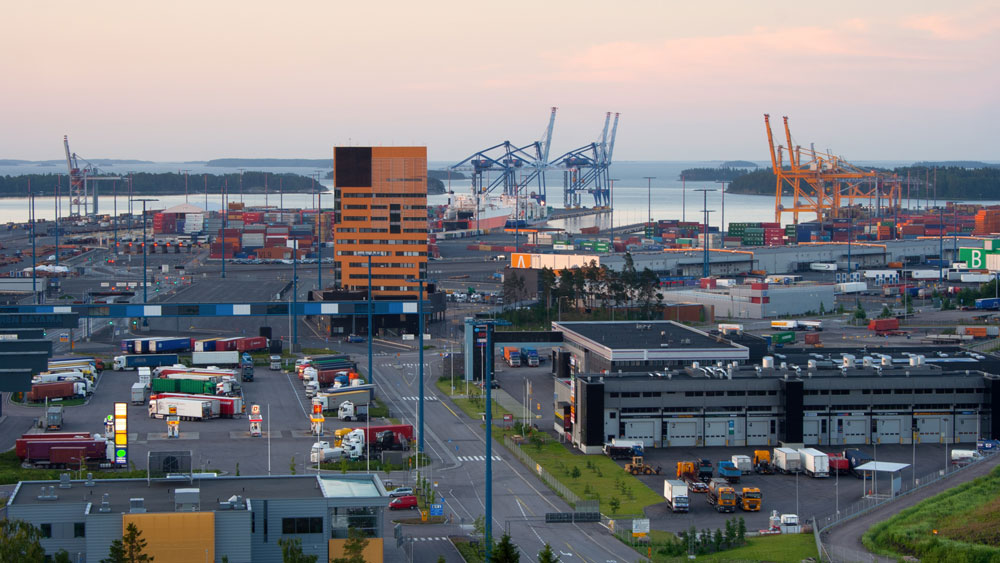Maija Palmu, Senior Adviser
Ministry of Economic Affairs and Employment, Innovation and Enterprise Financing Department, Industrial policy Telephone:0295047020 Email Address:
Valitse kieli:
This page is in Finnish. Go to the English site »
Or choose language:
Den här sidan är på finska. Gå till den svenska versionen av sidan »
Eller välj språk:
Dát siidu lea suomagillii. Sirdás davvisámegielat siidduide »
Dahje vállje giela:
Язык этого сайта финский. Перейти на русскоязычный сайт »
Или выберите язык:
Cette page est en finnois. Aller sur le site en français »
Ou choisir la langue:
Diese Seite ist auf Finnisch. Wechseln Sie zur deutschen Version »
Oder wählen Sie Ihre Sprache:
Tämä sivu on englanniksi. Siirry suomenkieliseen sivustoon »
Tai valitse kieli:
Choose language:
Den här sidan är på engelska. Gå till den svenska versionen av sidan »
Eller välj språk:
Язык этого сайта английский. Перейти на русскоязычный сайт »
Или выберите язык:
Dát siidu lea eŋgelasgillii. Sirdás davvisámegielat siidduide »
Dahje vállje giela:
Cette page est en anglais. Aller sur le site en français »
Ou choisir la langue:
Diese Seite ist auf Englisch. Wechseln Sie zur deutschen Version »
Oder wählen Sie Ihre Sprache:
Tämä sivu on ruotsiksi. Siirry suomenkieliseen sivustoon »
Tai valitse kieli:
This page is in Swedish. Go to the English site »
Or choose language:
Välj språk:
Язык этого сайта шведский. Перейти на русскоязычный сайт »
Или выберите язык:
Dát siidu lea eŋgelasgillii. Sirdás davvisámegielat siidduide »
Dahje vállje giela:
Cette page est en suédois. Aller sur le site en français »
Ou choisir la langue:
Diese Seite ist auf Schwedisch. Wechseln Sie zur deutschen Version »
Oder wählen Sie Ihre Sprache:
Tämä sivu on pohjois-saameksi. Siirry suomenkieliseen sivustoon »
Tai valitse kieli:
This page is in North Saami. Go to the English site »
Or choose language:
Den här sidan är på nordsamiska. Gå till den svenska versionen av sidan »
Eller välj språk:
Язык этого сайта северосаамский. Перейти на русскоязычный сайт »
Или выберите язык:
Vállje giela:
Cette page est en same du Nord. Aller sur le site en français »
Ou choisir la langue:
Diese Seite ist auf Nordsamisch. Wechseln Sie zur deutschen Version »
Oder wählen Sie Ihre Sprache:
Tämä sivu on venäjäksi. Siirry suomenkieliseen sivustoon »
Tai valitse kieli:
This page is in Russian. Go to the English site »
Or choose language:
Den här sidan är på ryska. Gå till den svenska versionen av sidan »
Eller välj språk:
Dát siidu lea ruoššagillii. Sirdás davvisámegielat siidduide »
Dahje vállje giela:
выберите язык:
Cette page est en russe. Aller sur le site en français »
Ou choisir la langue:
Diese Seite ist auf Russisch. Wechseln Sie zur deutschen Version »
Oder wählen Sie Ihre Sprache:
Tämä sivu on ranskaksi. Siirry suomenkieliseen sivustoon »
Tai valitse kieli:
This page is in French. Go to the English site »
Or choose language:
Den här sidan är på franska. Gå till den svenska versionen av sidan »
Eller välj språk:
Dát siidu lea fránskkagillii. Sirdás davvisámegielat siidduide »
Dahje vállje giela:
Язык этого сайта французский. Перейти на русскоязычный сайт »
Или выберите язык:
Choisir la langue:
Diese Seite ist auf Französisch. Wechseln Sie zur deutschen Version »
Oder wählen Sie Ihre Sprache:
Tämä sivu on saksaksi. Siirry suomenkieliseen sivustoon »
Tai valitse kieli:
This page is in German. Go to the English site »
Or choose language:
Den här sidan är på tyska. Gå till den svenska versionen av sidan »
Eller välj språk:
Язык этого сайта немецкий. Перейти на русскоязычный сайт »
Или выберите язык:
Cette page est en allemand. Aller sur le site en français »
Ou choisir la langue:
Wählen Sie Ihre Sprache:

Industrial policy is an umbrella concept that brings together measures from several policy areas. In a broader sense, industrial policy includes measures that create the conditions for business operations, such as a well-functioning infrastructure, public funding for research, development and innovation, education and training, efficient public administration, and regulation.
Although industrial policy falls within the competence of the Member States, decisions at EU level provide the framework for Finland’s industrial policy. Finland’s goal is that the EU’s long-term strategic competitiveness should be based on further developing the Union’s own strengths and on market-based solutions. A functioning single market and an effective state aid policy that ensures fair and equal operating conditions are key starting points.
Finland has stressed that EU industrial policy should primarily promote industrial renewal and leave adequate room for technological development and innovation.
The European Commission published the Clean Industrial Deal in February 2025. The programme aims to lay the foundation for the EU’s competitiveness and decarbonisation and to address, in a coordinated way, challenges related to the climate crisis, competitiveness and economic resilience. Its focus is on energy-intensive industrial sectors, clean tech and the circular economy.
Clean Industrial Deal | European Commission
Maija Palmu, Senior Adviser
Ministry of Economic Affairs and Employment, Innovation and Enterprise Financing Department, Industrial policy Telephone:0295047020 Email Address: [email protected]